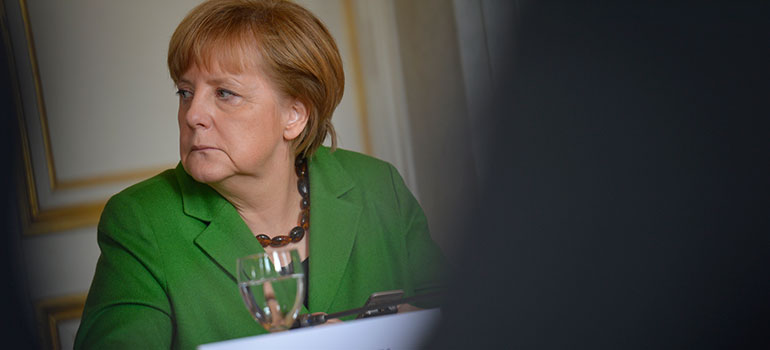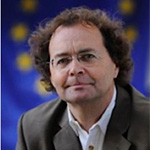
Less than a week before U.S. President-elect Donald Trump takes office, Germany’s chancellor, Angela Merkel, is being hailed by many as the last defender of Europe and new leader of the free world.
Kurt Huebner, UBC political science professor and director of the Institute for European Studies, believes Merkel, who is seeking her fourth term as chancellor in October, is up to the task of defending the global liberal order under a Trump presidency—but doing so will come with its fair share of challenges.

Kurt Huebner
Trump started off his presidency by criticizing Merkel for what he described as a “catastrophic mistake” allowing a wave of more than one million migrants into her country. How does this move bode for U.S.-German relations?
Merkel and her coalition government are very much dedicated to realpolitik, meaning politics based on practical objectives rather than on ideals, and this means they will try to work with the Trump administration. Having said that, Trump’s statement in Bild, the largest tabloid newspaper in Germany, created quite a political uproar in the country and fed the fear that Trump will show a very different attitude to Germany and Europe than any other U.S. administration after the Second World War. Add to this Trump’s friendly gestures to Putin and the threat of import tariffs against German car companies, and you get an idea how those relations are getting tested.
In what ways are we already seeing a shift away from the liberal order?
The Trump presidency may really change the attitude more globally. The big challenges I see is, for one, the rise of economic nationalism and mercantilism, and two, that the political situation in a number of nation-states is moving toward what we call “illiberal democracy”—there are democratic elections, but more state control of media and restrictions on public discourse. We see this in countries such as Hungary, Poland and Turkey but also in cases like China.
There is no reason to fear this happening in Germany and Canada at this point, but they will have to be strong defenders of liberal order in domestic terms as well as international terms. Merkel is already showing some signs of compromise—she recently came out in support of a burqa ban in public institutions. It’s a signal to her party and the electorate. Her party, the Christian Democratic Union, is much more conservative than she is.
On the global level, the situation has changed enormously. In Eastern Europe, we have a couple of smaller, but relevant, countries with a more relaxed position toward Russia and Putin. We may see changes in France with the spring elections. It will likely be either the right-wing National Front’s Marine Le Pen or Francois Filion, head of the new populist Republican Party, who win the election. There is definitely a shift to the right in France, and both of them have declared that they would make changes in policies against Russia.
What role will Germany play this year on the world stage to maintain the liberal order?
Germany’s role on the international level will have to be much bigger than in the past, because it is one of the few remaining global powers who would defend liberal orders in a very broad sense. But taking this strong role on a global level comes with a lot of dangers, and conflicts with a post-war history of Germany’s reluctance to be a strong player on a global level.
The Holocaust still looms large over Germany’s citizens, and this is reflected in Germany’s international political actions. For quite a long time following WWII, Germany had a policy of chequebook diplomacy, and they have always acted with partners. There is a strong, entrenched reluctance to be seen as a dominant power. So there’s a contradiction. On the one hand, they need to have a much stronger role, but this is not supported by the historical trajectory of German foreign policy. It will require a lot of fortitude.
